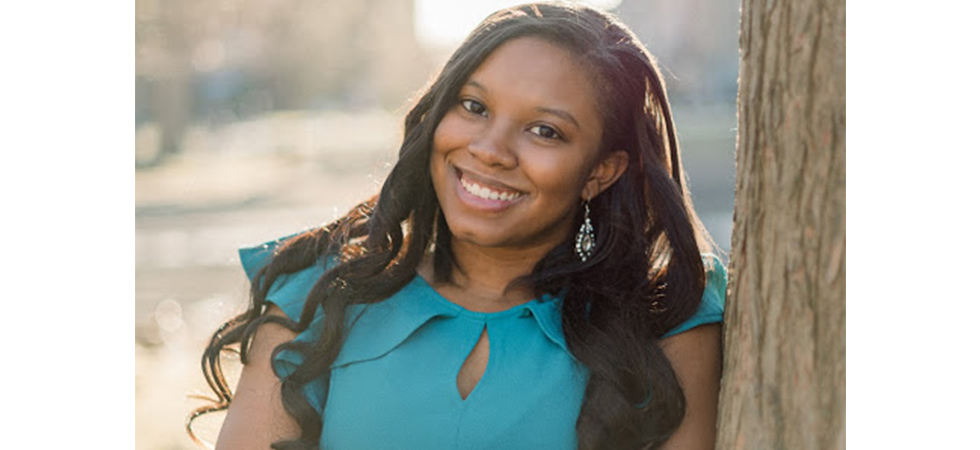From Lecture to Lab: Karly Stallworth ’21 Conducting ALS Research at UMass

As a junior, Karly Stallworth ’21 attended one of Assumption’s Center for Neuroscience lecture series—a decision, and a connection, that led to a valuable career opportunity working as a post-baccalaureate at the University of Massachusetts Medical School (UMMS). Stallworth will spend the next year working on amyotrophic lateral sclerosis (ALS) research under Daryl Bosco, Ph.D., an associate professor of neurology at UMMS and principle investigator of the Bosco Lab.
“The type of research that I am doing under the grant is research on a particular gene in ALS,” explained Stallworth. “This year of research will benefit my career by allowing me to conduct work as a scientist, and by giving me the valuable research experience that will allow me to stand out as an applicant for the doctoral programs that I hope to get into. Having this gap year allows me to hone my skills in the laboratory and get my name on publications before applying to schools.”
Stallworth met Dr. Bosco when the latter presented her research at the Center for Neuroscience’s lecture series prior to the COVID-19 pandemic. This meeting ultimately spawned an invitation for Stallworth to train in Dr. Bosco’s lab during the fall semester of her senior year. Though this planned internship and research opportunity was canceled due to COVID-19 precautions, Dr. Bosco and Stallworth persisted.
“Dr. Bosco offered to apply for a supplement to her existing multi-PI grant that is shared between Dr. Bosco at UMMS and her collaborator Clotilde Lagier-Tourenne, Ph.D., M.D., in the neurology department at Massachusetts General Hospital (MGH). The supplement is for underrepresented minorities in science so that I could conduct research and get paid for it after graduation,” said Stallworth. “This was fantastic because it allowed me to have a job lined up before I even officially began my senior year at Assumption.”
Under the current National Institutes of Health (NIH) research project grant, which provides support and funding for health-related research and development, Dr. Bosco applied for a supplement, which was approved by the National Institute of Neurological Disorders and Stroke (NINDS), a branch of the NIH, allowing her to hire Stallworth to work in the lab. This supplemental award will support Stallworth for a full year of research training and mentorship. She’ll be joined by senior Ph.D. students as well as a visiting scholar and doctor, all of whom will help teach Stallworth various lab techniques.
“When I first met Karly Stallworth at Assumption University, I could feel her enthusiasm for neuroscience and could see she was serious about a career path in biomedical research,” said Dr. Bosco, who was told by a program officer at NINDS about this Diversity Supplement opportunity and realized it was an ideal opportunity for Stallworth to join UMMS as a post-baccalaureate and gain the research experience she seeks. “Karly has been working in the lab for less than a month and she has already hit the ground running. She is very conscientious about her work and is fearless to try new things. I see a lot of potential in Karly and I am confident she will attain her goal of becoming a clinician-scientist.”
In the lab, Stallworth is focused mainly on a project that involves exploring how mutant Fused in sarcoma (FUS), a nuclear DNA/RNA binding protein that regulates different steps of gene expression, affects the exchange of proteins and RNAs between the cytoplasm (a material living found in cells) and the nucleus in ALS patients. A recent paper published in the scientific journal Nature Neuroscience by the Bosco Lab and colleagues demonstrated that mutant FUS alters the way proteins shuttle between the nucleus and the cytoplasm, which causes cells to become sick and may ultimately lead to neurodegeneration.
In addition to working with cell culture models to elucidate how mutant FUS impairs nucleocytoplasmic transport, Stallworth is also learning additional laboratory techniques related to molecular biology and animal models of neurodegenerative disease.
Stallworth said that this research experience is reinforcing her interest in medical school and pursuing an M.D./Ph.D. degree. “My ultimate career goal is to become a physician-scientist so that I can see patients as a neurologist and continue to pursue my interest in wet lab research as a neuroscientist,” said Stallworth, adding that she and Dr. Bosco have already discussed the possibility of applying to extend the grant another year so that she can work in the lab during the long medical school application process.
Stallworth added that her Assumption education helped prepare her for her new role as a post-baccalaureate. “My education at Assumption put me in a position to not only understand lab techniques well, but also the theory behind them which has allowed me to have in-depth conversations about science and has facilitated my critical thinking skills which allows me to be very independent,” she explained.
She added that the support she received as a student and while applying for the grant was unmatched. “[My professors] bent over backwards to not only help me in achieving the grant, but also in helping me to maximize my learning and potential during my time at Assumption,” she said. “I went from one who never thought that I would achieve my dream career in science to someone who received the departmental award for neuroscience with a cellular path, and achieved a great opportunity to conduct research at my dream medical school.”
